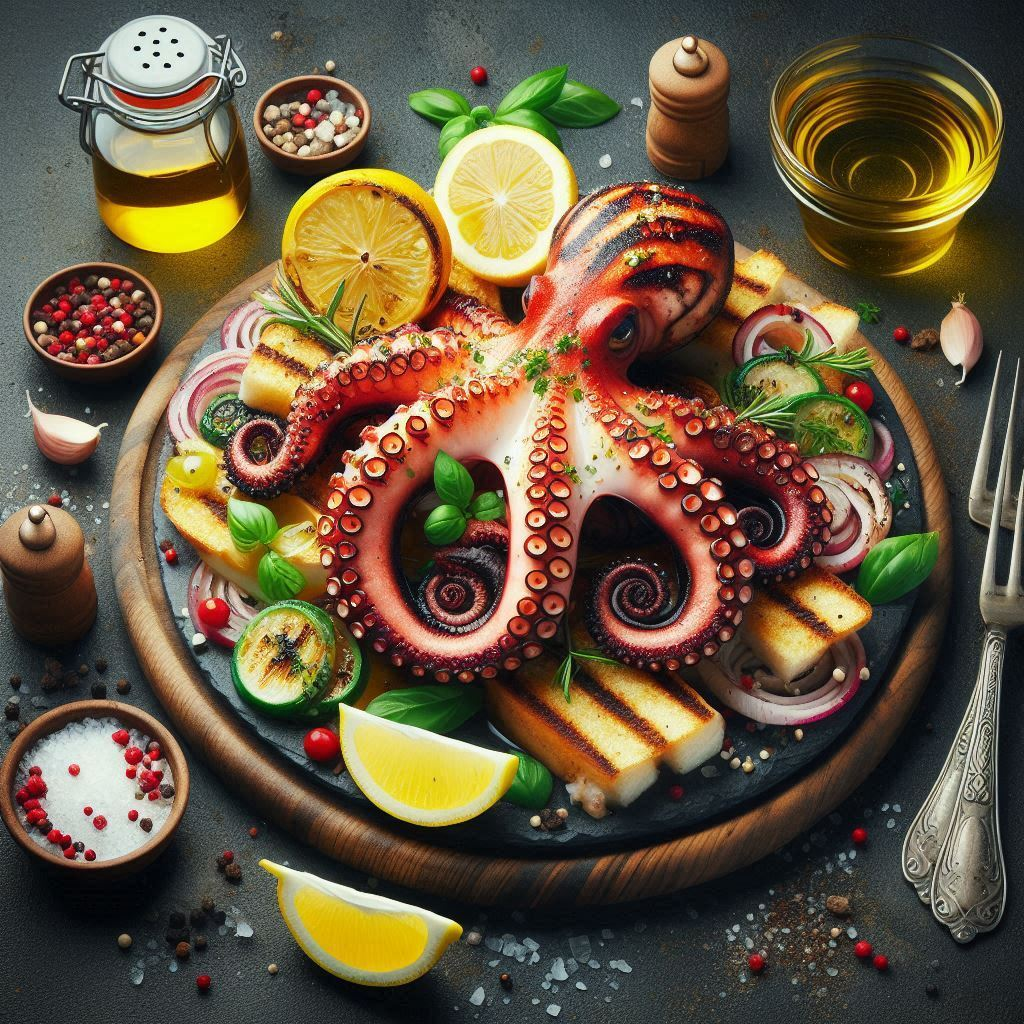
A Culinary Journey: The History and Art of Grilled Octopus
The humble octopus, a creature of the deep, has been a staple in coastal cuisines for centuries. Its firm texture and delicate flavor have captivated palates across the globe, inspiring countless culinary traditions. Today, we delve into the fascinating world of grilled octopus, exploring its history, preparation techniques, and the secrets to achieving the perfect char and tenderness.
A Global Culinary Legacy:
The history of octopus consumption stretches back millennia. Archaeological evidence suggests that humans have been enjoying octopus for at least 2,000 years, with ancient civilizations in Greece, Rome, and the Mediterranean region incorporating it into their diets. In ancient Greece, octopus was considered a delicacy, often served with olive oil, vinegar, and herbs. The Romans, too, embraced the octopus, preparing it in various ways, including grilling, roasting, and stewing.
Over time, the octopus journeyed across the globe, becoming a cornerstone of diverse culinary traditions. In Japan, octopus is a beloved ingredient, often featured in dishes like takoyaki (octopus balls) and sashimi. In Spain, it is a star in pulpo a la gallega, a traditional dish featuring grilled octopus served with potatoes and paprika. And in Portugal, octopus is enjoyed in polvo à lagareiro, a flavorful dish featuring grilled octopus drizzled with olive oil and garlic.
The Art of Grilling: A Masterful Balance
Grilling octopus is a culinary art form that requires a delicate balance of heat, time, and technique. The goal is to achieve a perfectly charred exterior while maintaining a tender, succulent interior. Here’s a step-by-step guide to grilling octopus like a true master chef:
1. Preparation is Key:
- Choose the Right Octopus: Opt for a fresh, medium-sized octopus, typically weighing around 2-3 pounds. Look for firm, bright-colored tentacles with a pleasant aroma.
- Tenderize the Octopus: To ensure tenderness, you can tenderize the octopus by pounding it with a meat mallet or using a technique called “parboiling“. Parboiling involves briefly simmering the octopus in boiling water for 10-15 minutes, which helps to break down the tough proteins.
- Season with Care: Season the octopus generously with salt, pepper, and your favorite herbs and spices. Consider using a blend of Mediterranean herbs like oregano, thyme, and rosemary, or adding a touch of paprika or chili powder for a spicy kick.
2. Mastering the Grill:
- Pre-heat the Grill: Preheat your grill to medium-high heat (around 400-450 degrees Fahrenheit). For optimal results, use a charcoal grill, but a gas grill will also work.
- Grill with Precision: Place the octopus directly on the grill grates, ensuring that it is evenly distributed. Close the lid and allow the octopus to cook for 10-15 minutes per side, flipping it every few minutes to ensure even cooking.
- Monitor for Doneness: The octopus is cooked when the tentacles are firm and slightly charred. You can test for doneness by piercing a tentacle with a fork or knife. If the juices run clear, it’s ready.
3. Serving with Finesse:
- Rest and Slice: Once cooked, remove the octopus from the grill and let it rest for 5-10 minutes before slicing. This allows the juices to redistribute, resulting in a more flavorful and tender octopus.
- Accompaniments and Garnishes: Serve the grilled octopus with a variety of accompaniments and garnishes to enhance its flavor and presentation. Consider serving it with roasted potatoes, grilled vegetables, lemon wedges, fresh herbs, or a tangy vinaigrette.
A Culinary Adventure Awaits:
Grilled octopus is a versatile dish that can be enjoyed in countless ways. It can be served as a main course, appetizer, or even incorporated into salads and sandwiches. The possibilities are endless, allowing you to unleash your creativity and create your own culinary masterpiece.
So, embark on a culinary adventure and discover the magic of grilled octopus. With the right techniques and a touch of passion, you can create a dish that is both delicious and impressive. Enjoy the journey!



